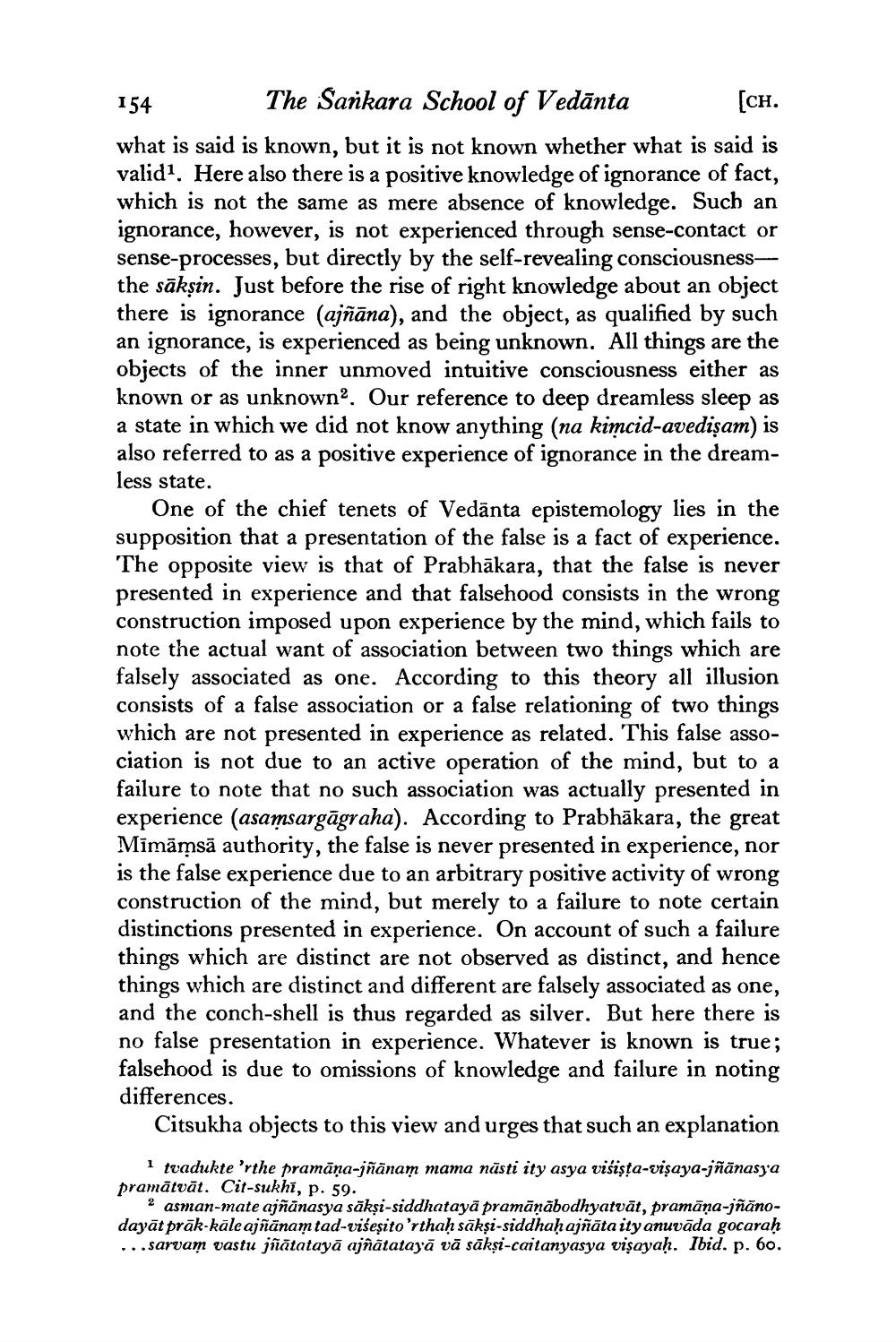________________
154
The Sankara School of Vedanta
[CH.
what is said is known, but it is not known whether what is said is valid1. Here also there is a positive knowledge of ignorance of fact, which is not the same as mere absence of knowledge. Such an ignorance, however, is not experienced through sense-contact or sense-processes, but directly by the self-revealing consciousness— the sākṣin. Just before the rise of right knowledge about an object there is ignorance (ajñāna), and the object, as qualified by such an ignorance, is experienced as being unknown. All things are the objects of the inner unmoved intuitive consciousness either as known or as unknown2. Our reference to deep dreamless sleep as a state in which we did not know anything (na kimcid-avedişam) is also referred to as a positive experience of ignorance in the dreamless state.
One of the chief tenets of Vedanta epistemology lies in the supposition that a presentation of the false is a fact of experience. The opposite view is that of Prabhākara, that the false is never presented in experience and that falsehood consists in the wrong construction imposed upon experience by the mind, which fails to note the actual want of association between two things which are falsely associated as one. According to this theory all illusion consists of a false association or a false relationing of two things which are not presented in experience as related. This false association is not due to an active operation of the mind, but to a failure to note that no such association was actually presented in experience (asamsargāgraha). According to Prabhakara, the great Mīmāmsā authority, the false is never presented in experience, nor is the false experience due to an arbitrary positive activity of wrong construction of the mind, but merely to a failure to note certain distinctions presented in experience. On account of such a failure things which are distinct are not observed as distinct, and hence things which are distinct and different are falsely associated as one, and the conch-shell is thus regarded as silver. But here there is no false presentation in experience. Whatever is known is true; falsehood is due to omissions of knowledge and failure in noting differences.
Citsukha objects to this view and urges that such an explanation
1 tvadukte 'rthe pramāṇa-jñānam mama nāsti ity asya visiṣṭa-viṣaya-jñānasya pramätvät. Cit-sukhi, p. 59.
2
asman-mate ajñānasya sākṣi-siddhataya pramāṇābodhyatvāt, pramāṇa-jñānodayāt prāk-kāle ajñānam tad-viśeşito'rthaḥ sākṣi-siddhaḥajñāta ity anuvada gocaraḥ ...sarvam vastu jñātatayā ajñātatayā vā sākṣi-caitanyasya viṣayaḥ. Ibid. p. 60.




